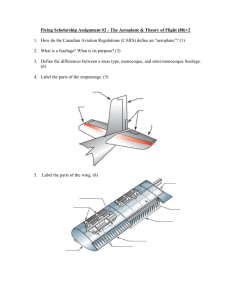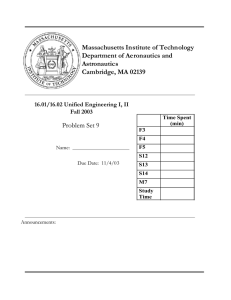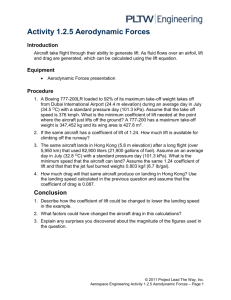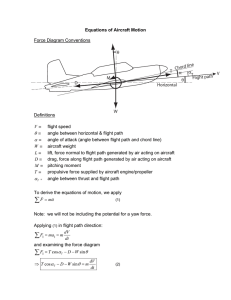Unified Engineering I Fall 2003
advertisement
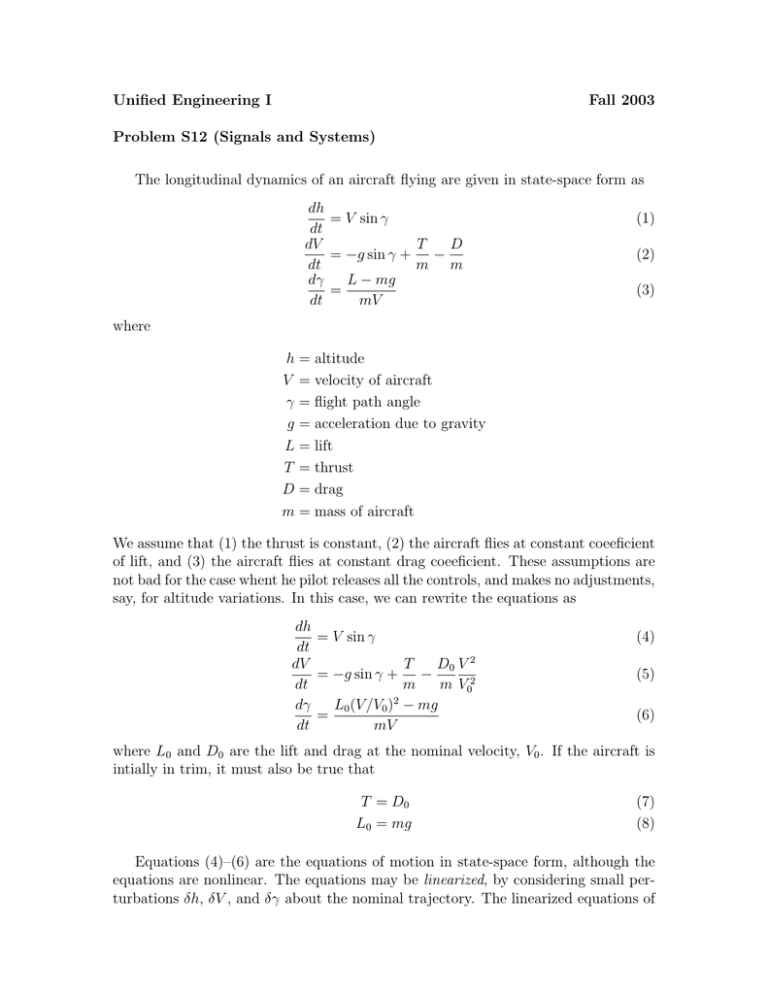
Unified Engineering I Fall 2003 Problem S12 (Signals and Systems) The longitudinal dynamics of an aircraft flying are given in state­space form as dh = V sin γ dt T D dV = −g sin γ + − dt m m dγ L − mg = dt mV (1) (2) (3) where h = altitude V = velocity of aircraft γ = flight path angle g = acceleration due to gravity L = lift T = thrust D = drag m = mass of aircraft We assume that (1) the thrust is constant, (2) the aircraft flies at constant coeeficient of lift, and (3) the aircraft flies at constant drag coeeficient. These assumptions are not bad for the case whent he pilot releases all the controls, and makes no adjustments, say, for altitude variations. In this case, we can rewrite the equations as dh = V sin γ dt dV T D0 V 2 − = −g sin γ + dt m m V02 dγ L0 (V /V0 )2 − mg = dt mV (4) (5) (6) where L0 and D0 are the lift and drag at the nominal velocity, V0 . If the aircraft is intially in trim, it must also be true that T = D0 L0 = mg (7) (8) Equations (4)–(6) are the equations of motion in state­space form, although the equations are nonlinear. The equations may be linearized, by considering small per­ turbations δh, δV , and δγ about the nominal trajectory. The linearized equations of motion (after a little work) are d δh = V0 δγ dt d 2g 1 δV = −g δγ − δV dt L0 /D0 V0 d 2g δγ = 2 δV dt V0 (9) (10) (11) So ẋ = Ax, where and ⎡ ⎤ δh ⎣ x = δV ⎦ δγ (12) ⎡ ⎤ 0 0 1 2g 1 ⎢ ⎥ A = ⎣ 0 − L0 /D0 V0 −g ⎦ 2g 0 0 V2 (13) 0 For a light aircraft flying at a nominal velocity of 120 knots, with a lift­to­drag ratio of 10, 1. Find the eigenvalues and eigenvectors of the system. 2. For an initial perturbation δh(0) = 0 m δV (0) = 0 m/sec δγ(0) = 0.1 rad find and plot the perturbations δh(t), δV (t), and δγ(t) as functions of time. This perturbation corresponds to a pertubation caused by a vertical gust which puts the aircraft momentarily into a 0.1 rad (6 deg) climb. Note: Some of the eigenvalues and eigenvectors are complex. As in the notes, treat a complex eigenvalue / eigenvector just as you would a real eigenvalue / eigenvector. You may find it useful to use Matlab, a spreadsheet, or Ada to calculate the results numerically.
